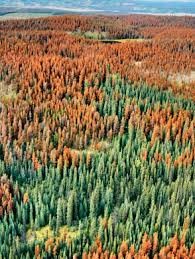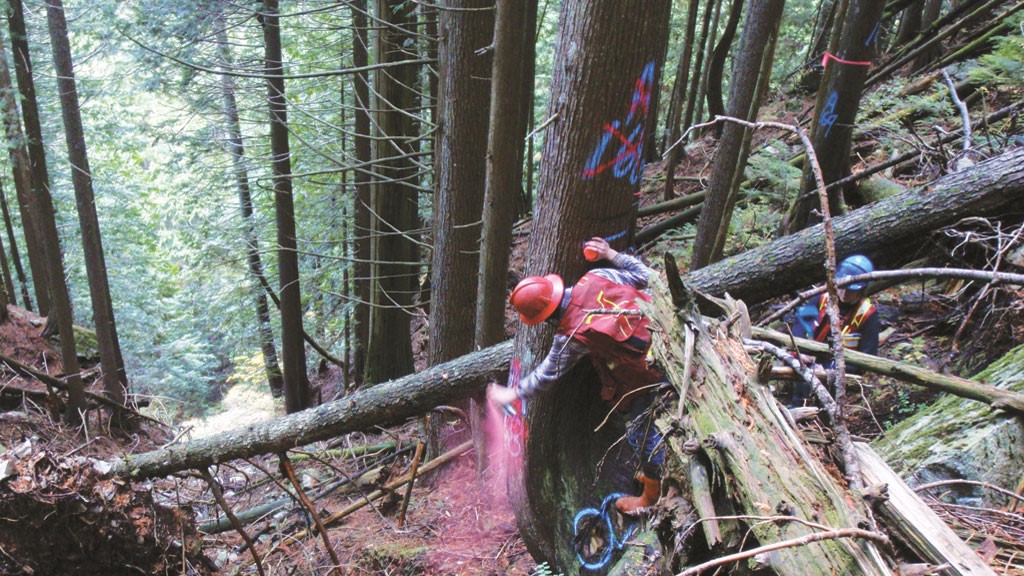Forest Stewards Guild : A View from Canada

Photo source: www2.gov.bc.ca
Written by Ray Travers, a Guild member in Victoria, BC, Canada
The COVID 19 virus is sending a message that humanity is putting excessive stress on nature. Conventional forest management based on assumptions of ecological stability and long-term predictability, no longer serve as the conceptual foundation for forest policy and practice.
In central British Columbia, Canada there was a major mountain pine beetle epidemic 2003 to 2016. Combined with large-scale clearcut salvage logging, the results are numerous, unintended ecological, economic, social, and cultural consequences.
In British Columbia clearcut logging is by far the dominant forest practice on some 150,000 ha/year. (370,000 acres/year). Public land is 94 percent of the province. A return to business as usual, along with other industrial activities, will only set the stage for another pandemic, like SARS, H1N1, or Ebola.1
The Forest Stewards Guild provides a forum for practitioners of ecological forestry to explore ways to reduce stress on nature, while serving human needs. Canada and the USA share the same cross-border ecosystems, so we have a common set of challenges and opportunities.
The Challenge
There are two basic challenges and questions, fundamental to all else in forest policy and practice. What do people want (i.e. outcomes) from current and future forests? Once decided, what are the most effective means to sustain these desired outcomes?
Good decisions will be based on reliable information, what can be effectively implemented, and will have a positive impact.

Photo source: Watershed Sentinel, Comox, British Columbia
The Opportunity
The post COVID -19 economy provides an unprecedented opportunity to practice restoration forestry. For example, let’s approach logging insurance companies to encourage restoration practices to increase forest resilience and reduce the risk and costs of another lockdown. Putting the forest first requires valid information regarding forest conditions and their capabilities, as well as the economic and environmental consequences of various forest practices.
Restoration forestry is by definition, the opposite of plantation management. Rather than having costs hidden and deferred to the next rotation or human generation, in restoration forestry, there are no hidden or deferred costs. Restoration forestry is pay-as–you-go.
Proposal
Restoration forestry means thinking big and thinking long term. Management guru, the late Peter Drucker said “The best way to predict the future is to create it.”
Ecological forestry is becoming policy in Nova Scotia, and I look forward to it becoming policy in British Columbia. Let’s work together on ideas to increase the contribution of the Forest Stewards Guild to ecological forestry, in Canada.
Editor’s note: You can find Oliver Raymond Travers (Ray Travers) in the Guild’s online Find-A-Forestry Directory if you’d like to be in touch about Guild forestry in Canada.
